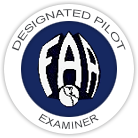While conducting a private pilot check ride recently, the importance of listening became a valuable lesson. We completed the oral portion of the exam, and we were ready to go flying. With clear blue sky and calm winds at the uncontrolled field, the roar of a nearby Cessna 182 departing on the runway cut through the mid-morning air. A perfect day to fly, and great weather for the checkride.
After preflight and engine start, the private pilot applicant turned on the avionics of the Cessna 152. He continued to ready the airplane for taxi as another Cessna 152 entered the pattern and announced “left downwind runway 22” on the local advisory frequency (CTAF) for the airport. With a quick glace at the deflated windsock, the pilot hopeful began his taxi….to runway 04. We approached the runway 04 run-up area, as the inbound traffic had now announced “left base runway 22”. Completing the run-up and final check list items, the applicant took a deep breath, turned to me and said, “I’m ready”. The timing could not have been more unfortunate. Without hesitation, I indicated this would be a short field takeoff and then on course to your first checkpoint on the cross-country. “Turning final runway 22”, the inbound traffic reported. The applicant noted the time, keyed the mic and announced, “departing runway 04 to the West”. Just as we came up to the hold short line, I told him to stop and asked what runway was being used. The landing traffic called now “short final runway 22” with an obvious tone of concern. Only then did the situation at hand become clear to the applicant. His expression said it all as he sunk into his seat.
Unfortunately, the chance of being a private pilot this day were over. I felt bad at turn of events, but even more concerned as to what potentially could have happened. Whether it is your check ride or not, it pays to be fully in tune with our surroundings as pilots. Just getting in the airplane, checking the windsock, and heading for a runway is not enough at an uncontrolled airport. Our observations for any flight should start much earlier and will clue us into a variety of signs for the upcoming flight. Listening to other aircraft on the radio as soon as we turn it on is one task we should all do. Many of us already make this a common practice, but others need to renew our attention to details when we get ready for the flight. Take the time to listen. It may save you, and others, some explaining one day.

